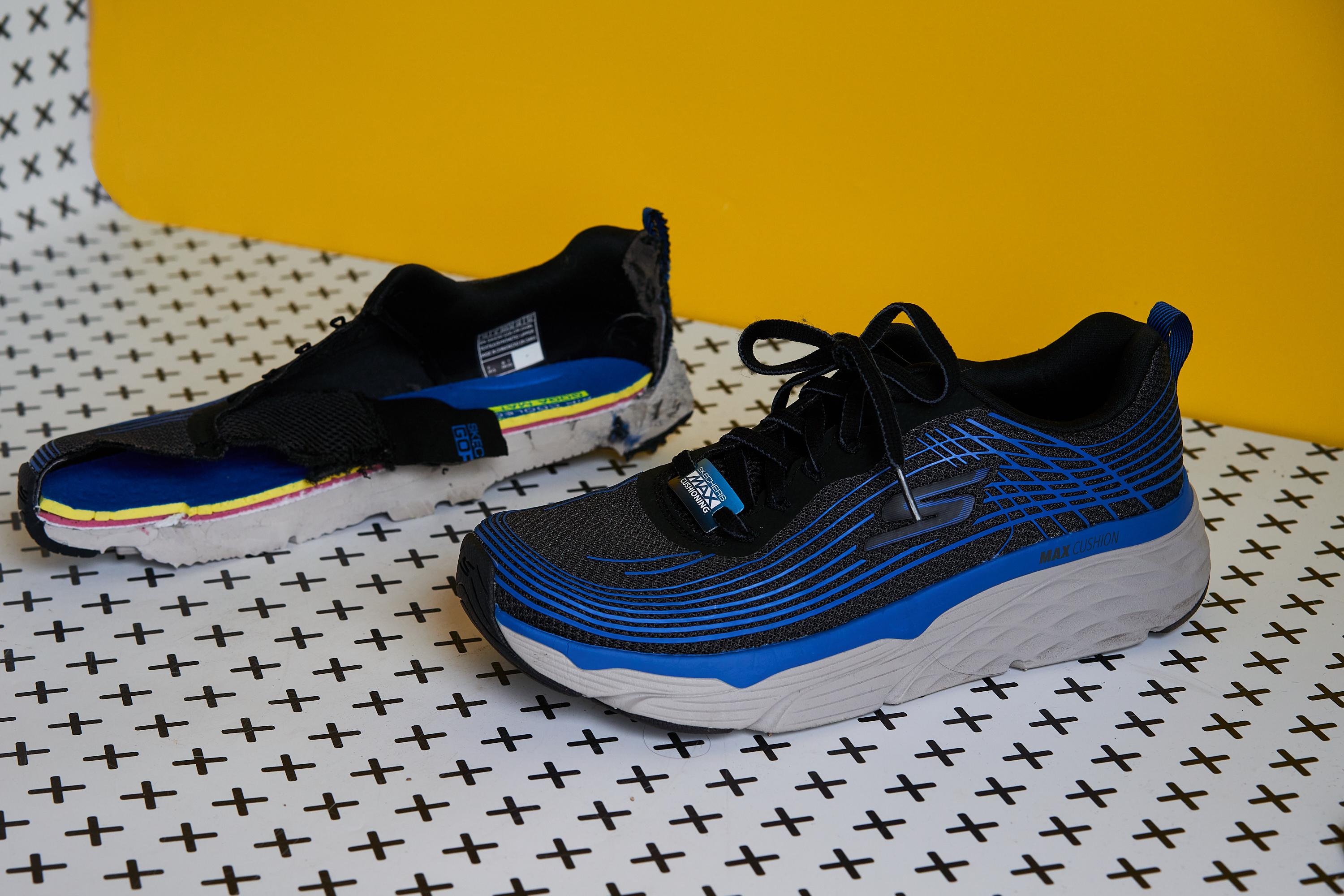Our verdict
Pros
- Excellent cushioning
- Roomy toe-box
- Good lockdown
- Comfy upper
- Great laces
- Budget-friendly
Cons
- No removable insole
- Not very durable
Audience verdict
Comparison
The most similar running shoes compared
+ + Add a shoe | |||||
|---|---|---|---|---|---|
| Audience score | 82 Good! | 91 Superb! | 89 Great! | 80 Good! | |
| Price | £90 | £170 | £150 | £85 | |
| Pace | Daily running | Daily running | Daily running | Daily running | |
| Shock absorption | - | High | High | - | |
| Energy return | - | Moderate | Moderate | - | |
| Traction | - | High | High | - | |
| Arch support | Neutral | Neutral | Neutral | Neutral | |
| Weight lab Weight brand | 11.9 oz / 336g 11.5 oz / 326g | 10.3 oz / 291g 10.3 oz / 292g | 9.9 oz / 282g 10 oz / 283g | 12 oz / 340g 12.5 oz / 354g | |
| Drop lab Drop brand | 16.1 mm 6.0 mm | 9.6 mm 8.0 mm | 8.7 mm 5.0 mm | 11.5 mm 10.0 mm | |
| Strike pattern | Heel | HeelMid/forefoot | HeelMid/forefoot | Heel | |
| Size | True to size | True to size | True to size | True to size | |
| Midsole softness | - | Soft | Soft | Balanced | |
| Difference in midsole softness in cold | - | Big | Normal | Small | |
| Toebox durability | - | Decent | Decent | Bad | |
| Heel padding durability | - | Decent | Good | Bad | |
| Outsole durability | - | Decent | Good | Good | |
| Breathability | - | Moderate | Breathable | Moderate | |
| Width / fit | Narrow | Medium | Medium | Medium | |
| Toebox width | - | Medium | Narrow | Narrow | |
| Stiffness | Stiff | Stiff | Stiff | Stiff | |
| Torsional rigidity | - | Stiff | Stiff | Stiff | |
| Heel counter stiffness | - | Moderate | Stiff | Moderate | |
| Rocker | ✗ | ✓ | ✗ | ✗ | |
| Heel lab Heel brand | 42.3 mm | 42.9 mm 47.0 mm | 39.3 mm 39.0 mm | 37.7 mm 20.0 mm | |
| Forefoot lab Forefoot brand | 26.2 mm | 33.3 mm 39.0 mm | 30.6 mm 34.0 mm | 26.2 mm 10.0 mm | |
| Widths available | NormalX-Wide | Normal | NormalWide | Normal | |
| Orthotic friendly | ✗ | ✓ | ✓ | ✓ | |
| Season | - | All seasons | SummerAll seasons | All seasons | |
| Removable insole | ✗ | ✓ | ✓ | ✓ | |
| Ranking | #551 Bottom 19% | #31 Top 9% | #118 Top 31% | #311 Bottom 18% | |
| Popularity | #285 Top 42% | #158 Top 42% | #93 Top 25% | #192 Bottom 49% |
Size and fit
Size
Skechers Max Cushioning Elite fits true to size (716 votes).
Skechers Max Cushioning Elite review and lab test
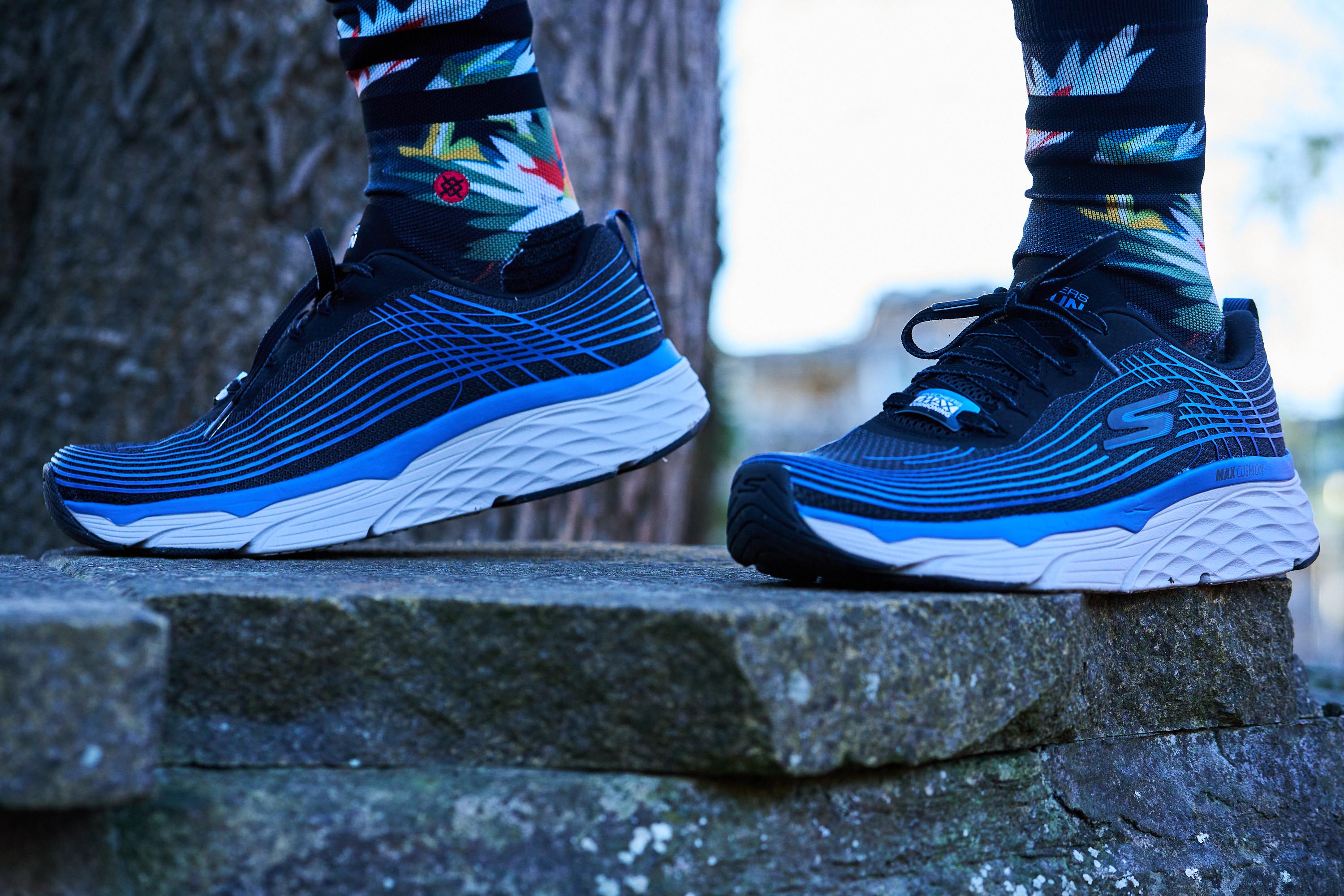
The Skechers Max Cushioning Elite is a high-comfort, low-budget running shoe that is super useful for slower training days. With an integrated insole and a large midsole, these really help dampen the impact on runners’ bodies.
Who should buy the shoe
The Skechers Max Cushioning Elite is something I recommend for newbie runners who are looking to care for their joints and their shins. With tonnes of padding underfoot, there’s less to worry about from the constant impact of the road.
Who should NOT buy the Max Cushioning Elite
The Cushioning Elite may not be the shoe for you if:
- You want to run fast. Try the Skechers GOrun Speed Elite
- You prefer a more ground feel. You might like the Skechers GOrun Razor Excess.
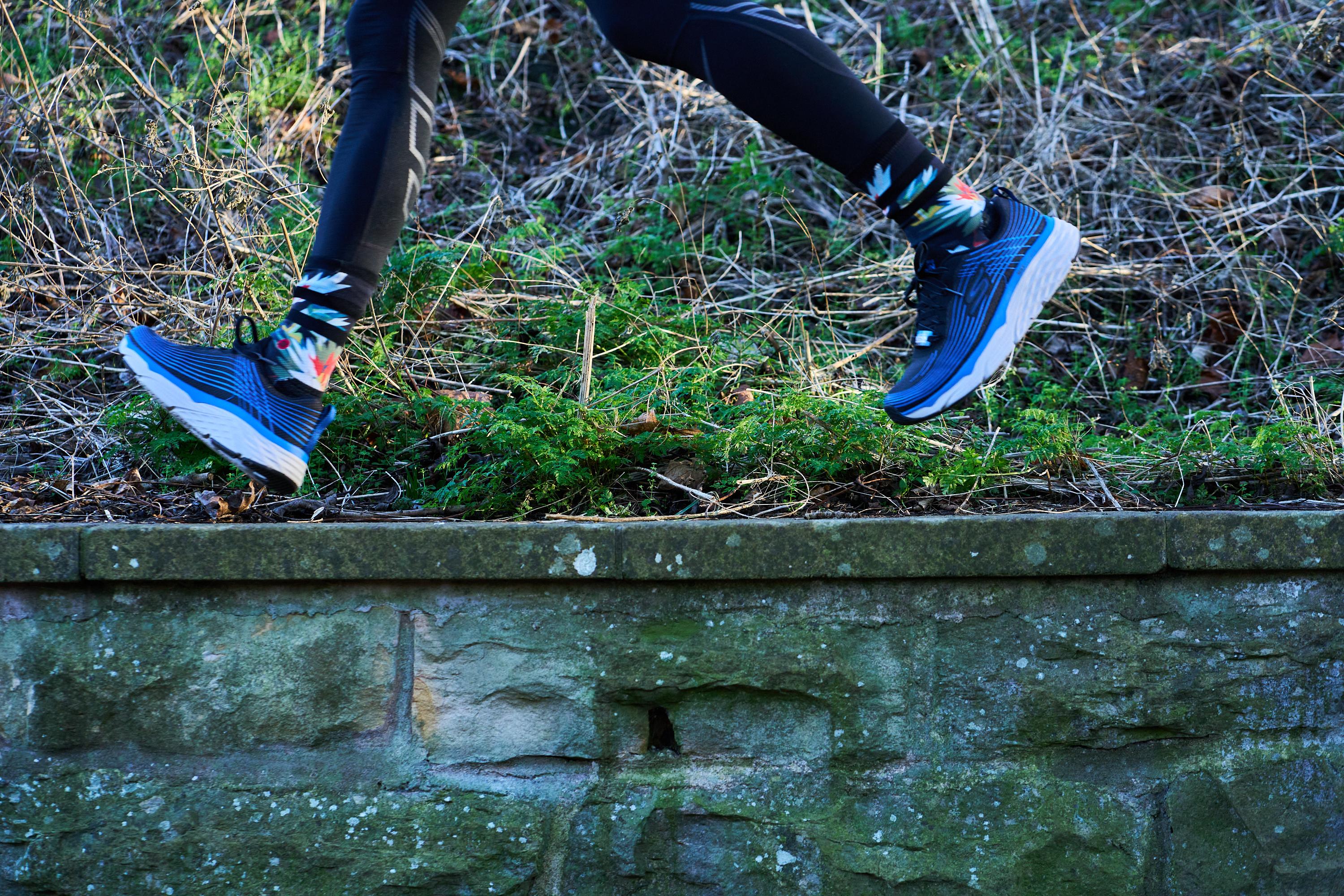
A solid, if bulky design
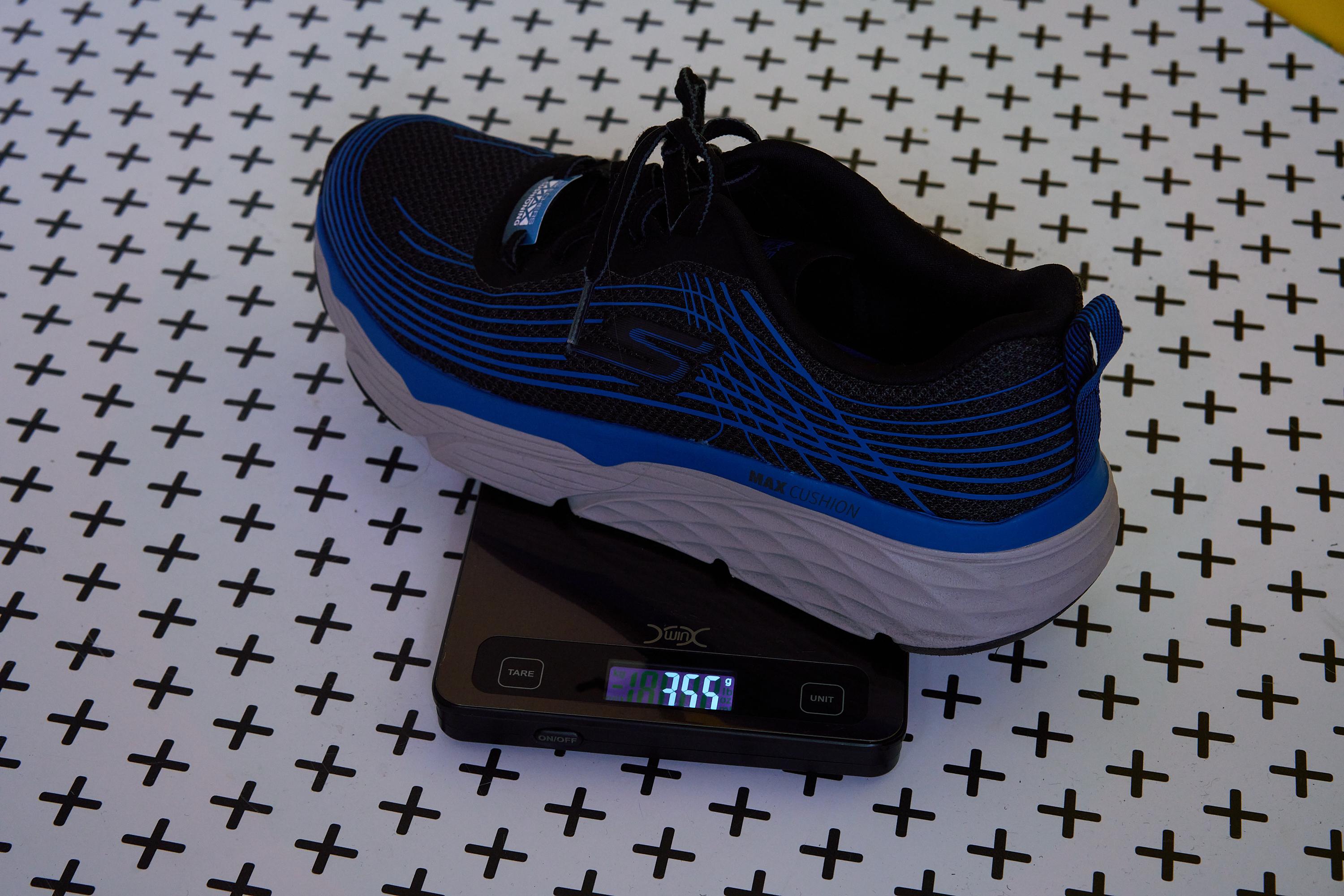
There’s no playing around here, Skechers has made a running shoe that looks a bit like a shoe out of Minecraft. With a big, square silhouette and a massive heel stack of 42.3mm, there’s no missing the Max cushioning Elite. It's also not very light at 12.5oz (355g)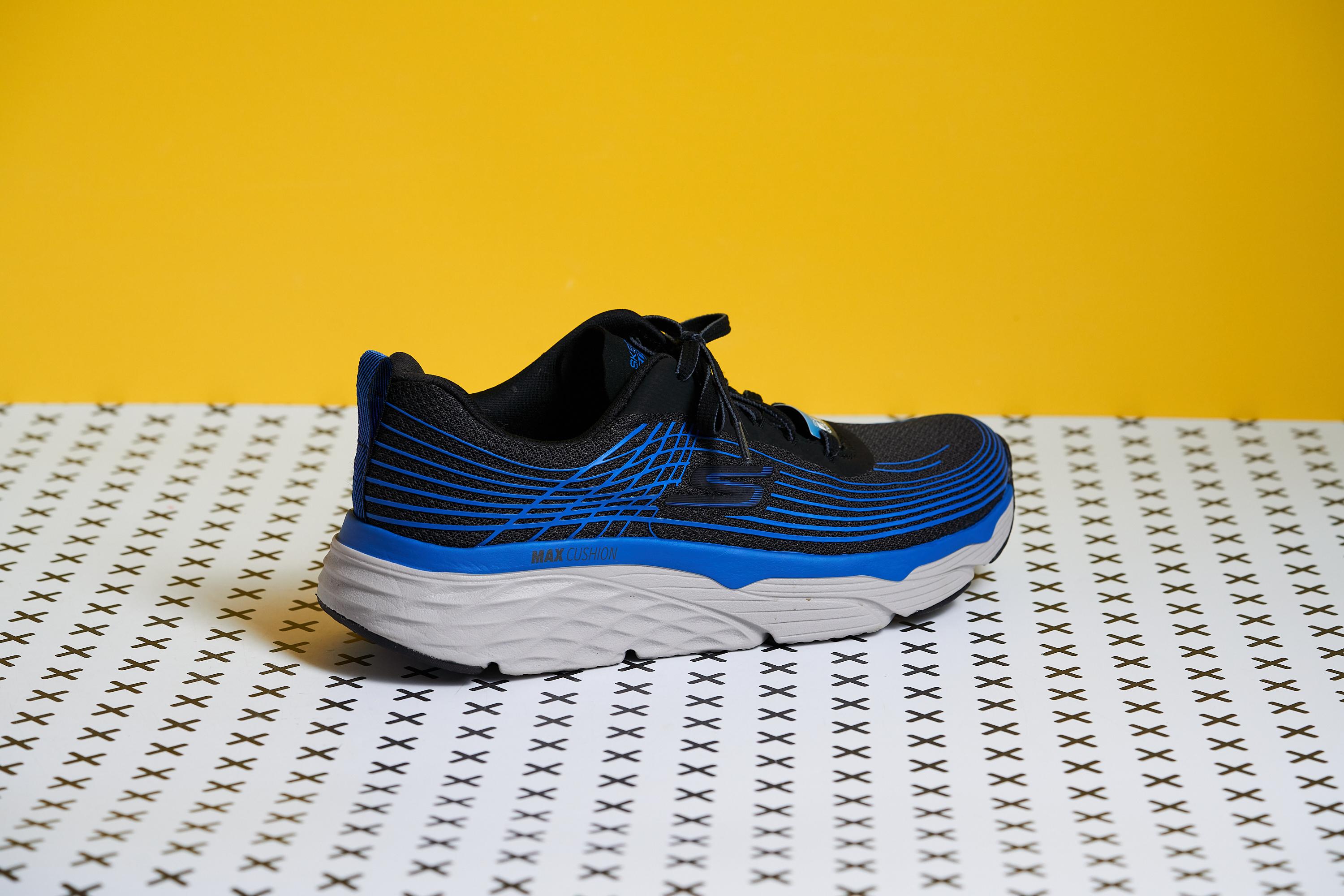
If you’re not fussed about appearances, the shoe does a really good job, especially for the super-low price point. The bulky design puts function over form, which is kind of Skechers; brand, but you can feel it when running.
The Max Cushioning midsole is…max cushioning
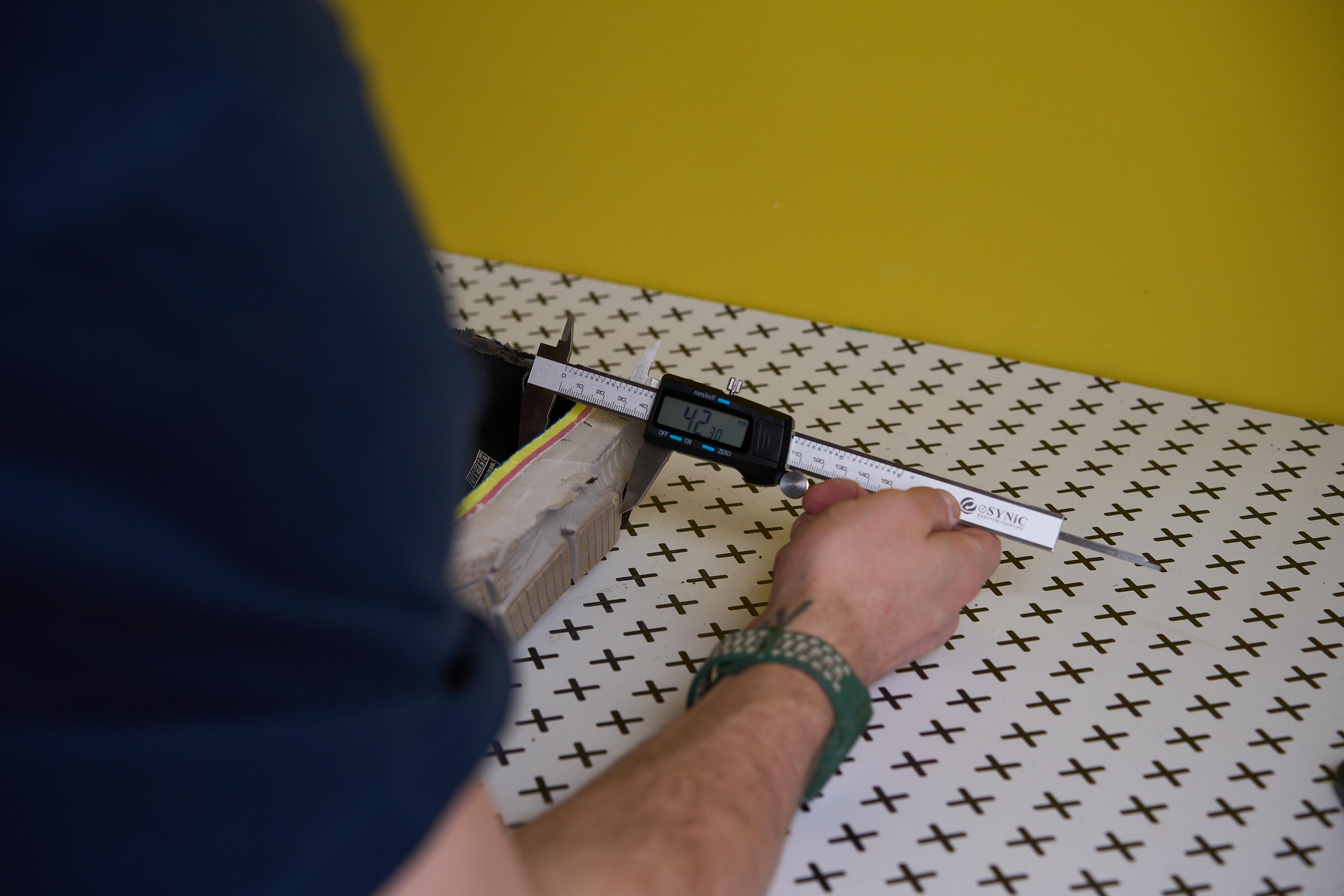
Bulky, but brilliant, the midsole is really the star of the show in this running shoe. With a huge forefoot stack height of 26.1mm, there’s loads of padding between your feet and the ground, meaning lots of dampening for your joints, muscles, and bones.
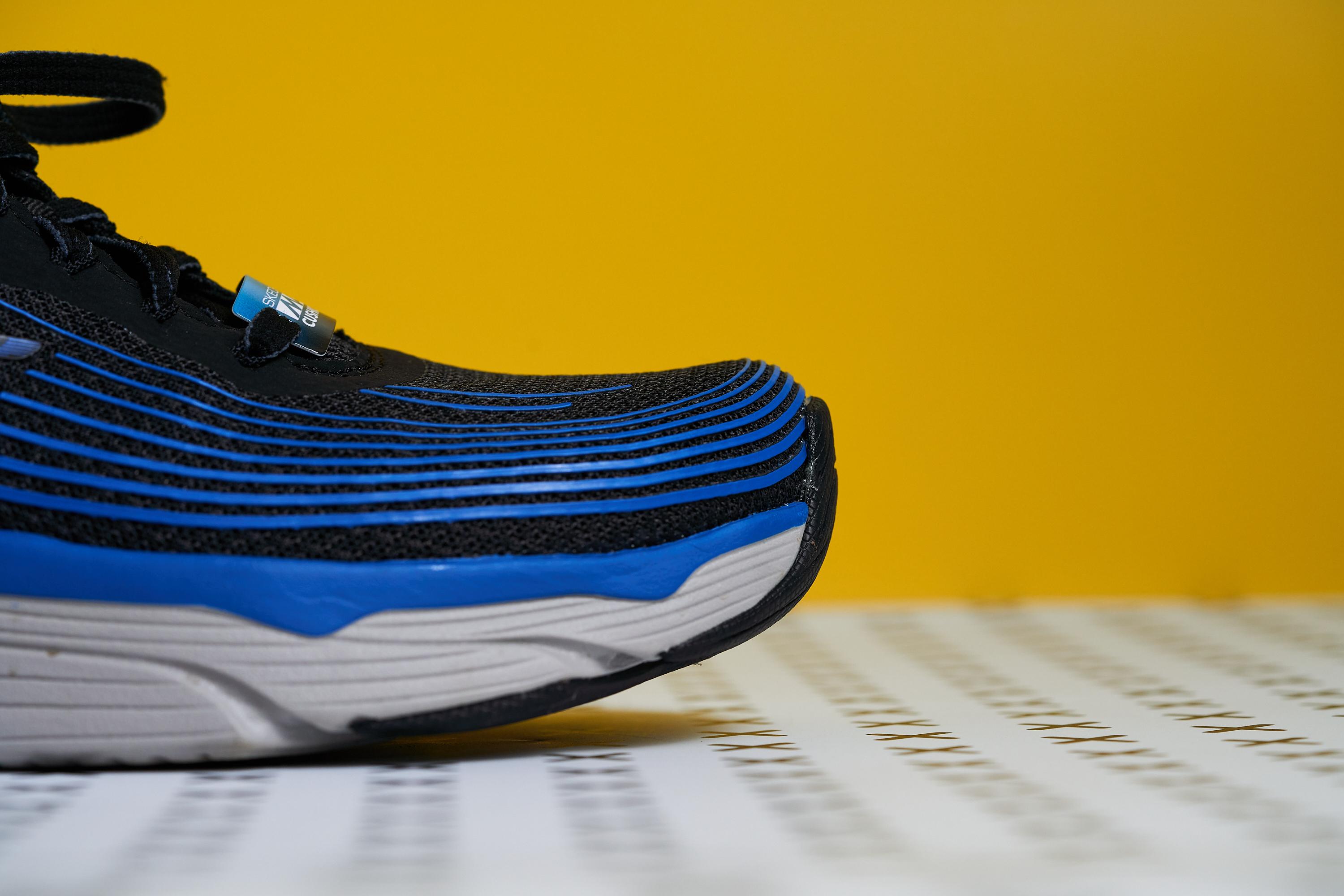
This makes the Max Cushioning Elite perfect for runners new to the sport (or back from an injury), or those who find they suffer from frequent impact injuries like shin splints.
The Skechers Max Cushioning Elite is slow
One of the costs of having tonnes of padding is that you lose significant energy with every step.
Where more minimal shoes allow you to transfer energy from your footstrike into the next lift-off, the Max Cushioning Elite absorbs all of that energy.
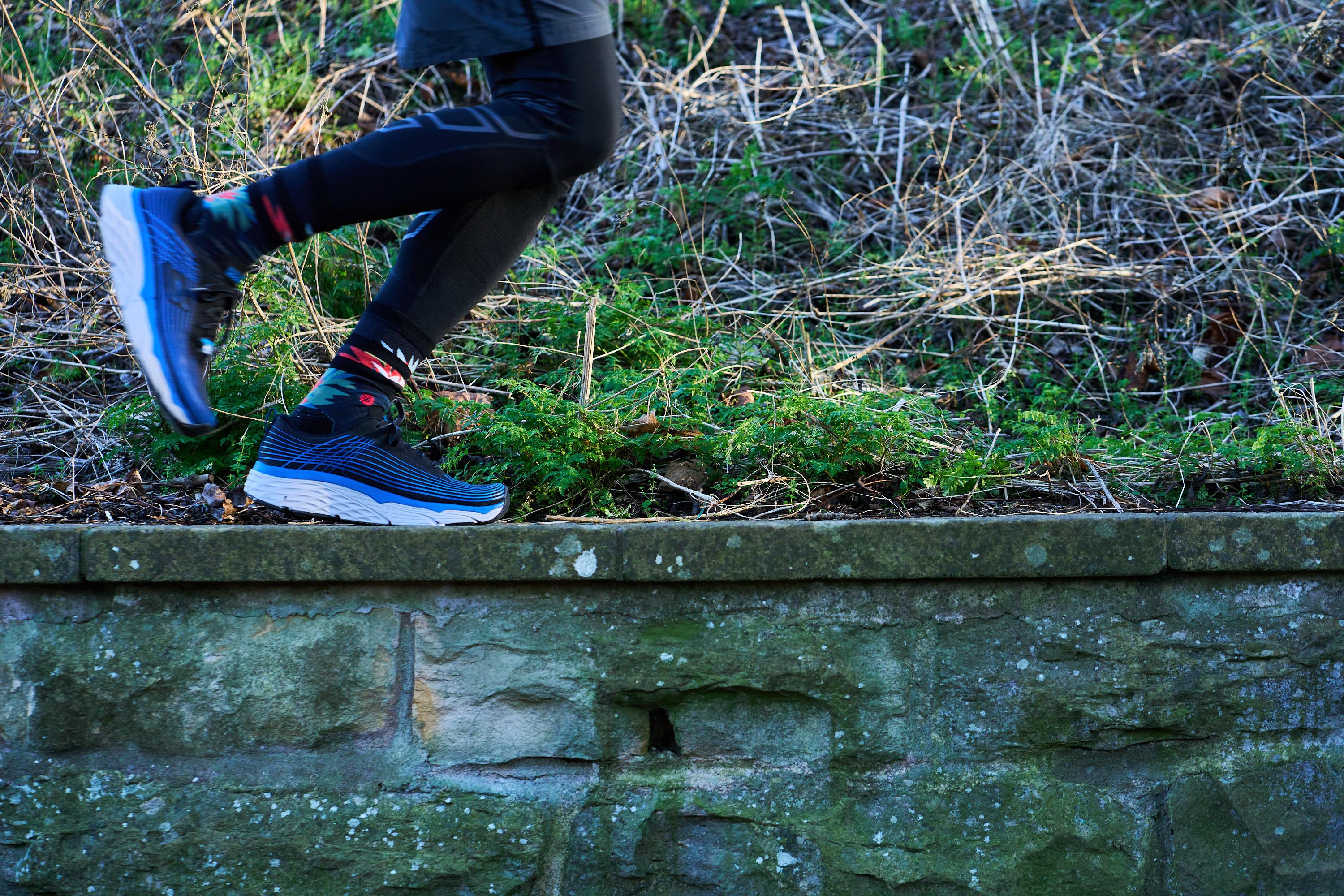
For a slow-paced training shoe, this isn’t really a problem, but you might want to consider building a rotation of shoes if this were your only pair.
The Max Cushioning Elite has a seriously roomy upper
The square shape of the upper makes it a relatively roomy fit. There’s plenty of space in the toe box and throughout the shoe.
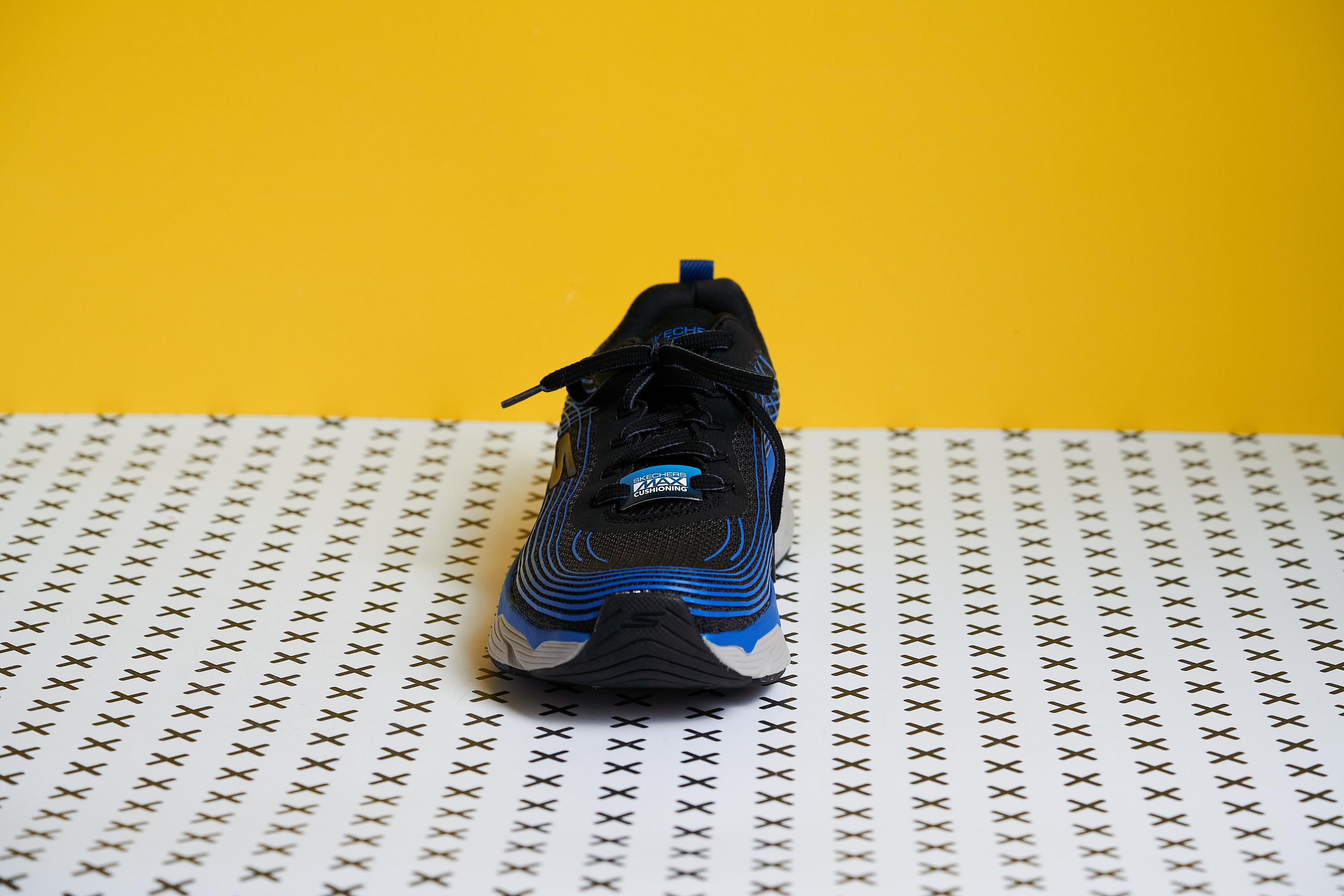
It felt a little too roomy for me, and my foot slipped around a bit but I’m sure runners with wider feet will feel comfortable in these.
The upper is quite well-padded and features a soft sock liner, which adds more comfort to the shoe. It does feel a little warm in there too, so it might not be the best for hotter climates.
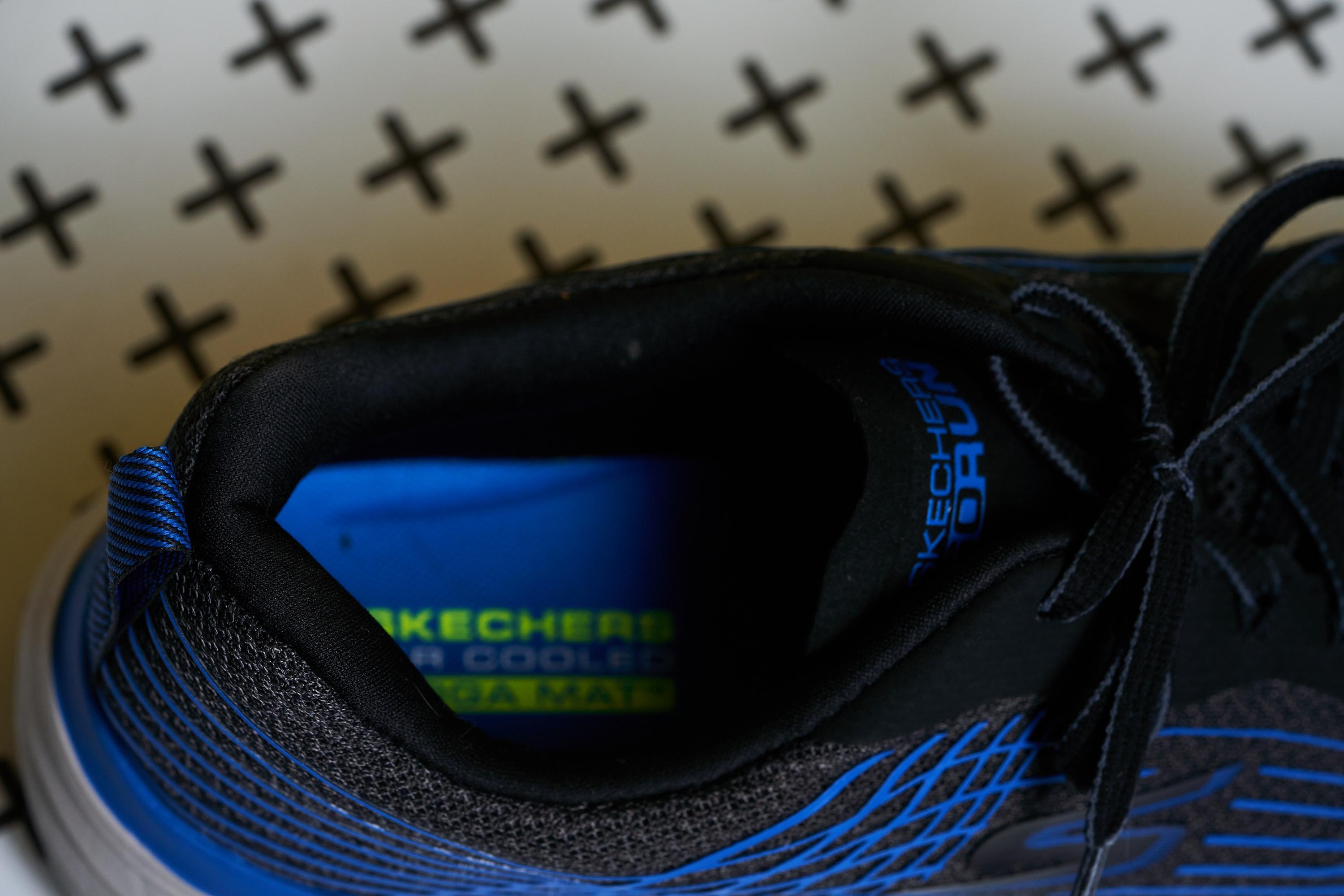
Great laces, average lockdown.
The construction of the upper is incredibly classic. There’s really not much in terms of strapping that you get from more modern shoes, so the lacing merely tightens the top of the shoe.
This does mean that for narrower or even regular width feet, the Skechers Max Cushion Elite runs a little wide.
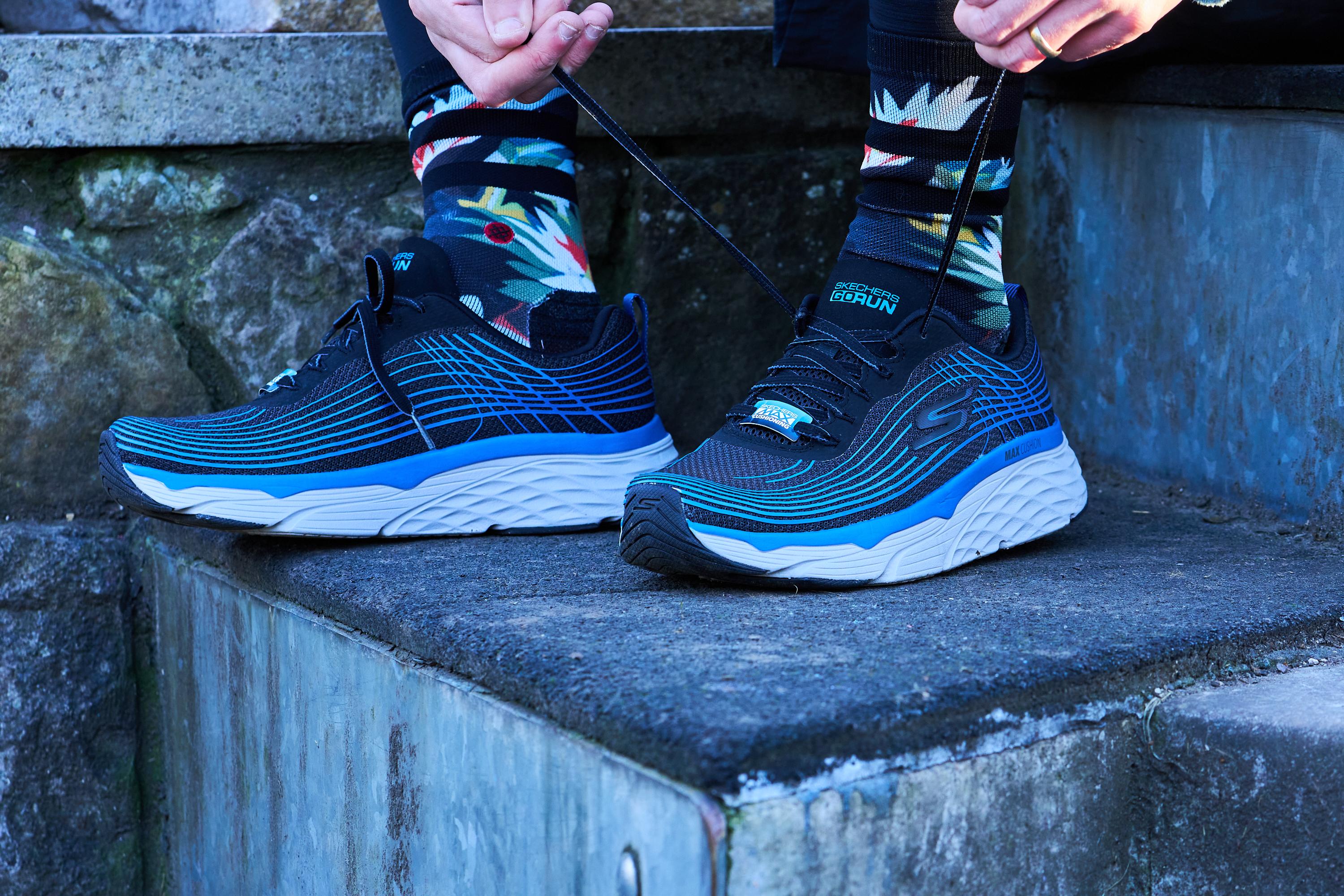
On the plus side, the super-stretchy laces do an excellent job of locking into place, so if you do find the shoe fits well then it should stay put, taking a whole 38N to untie (the average in our lab is currently 24N).
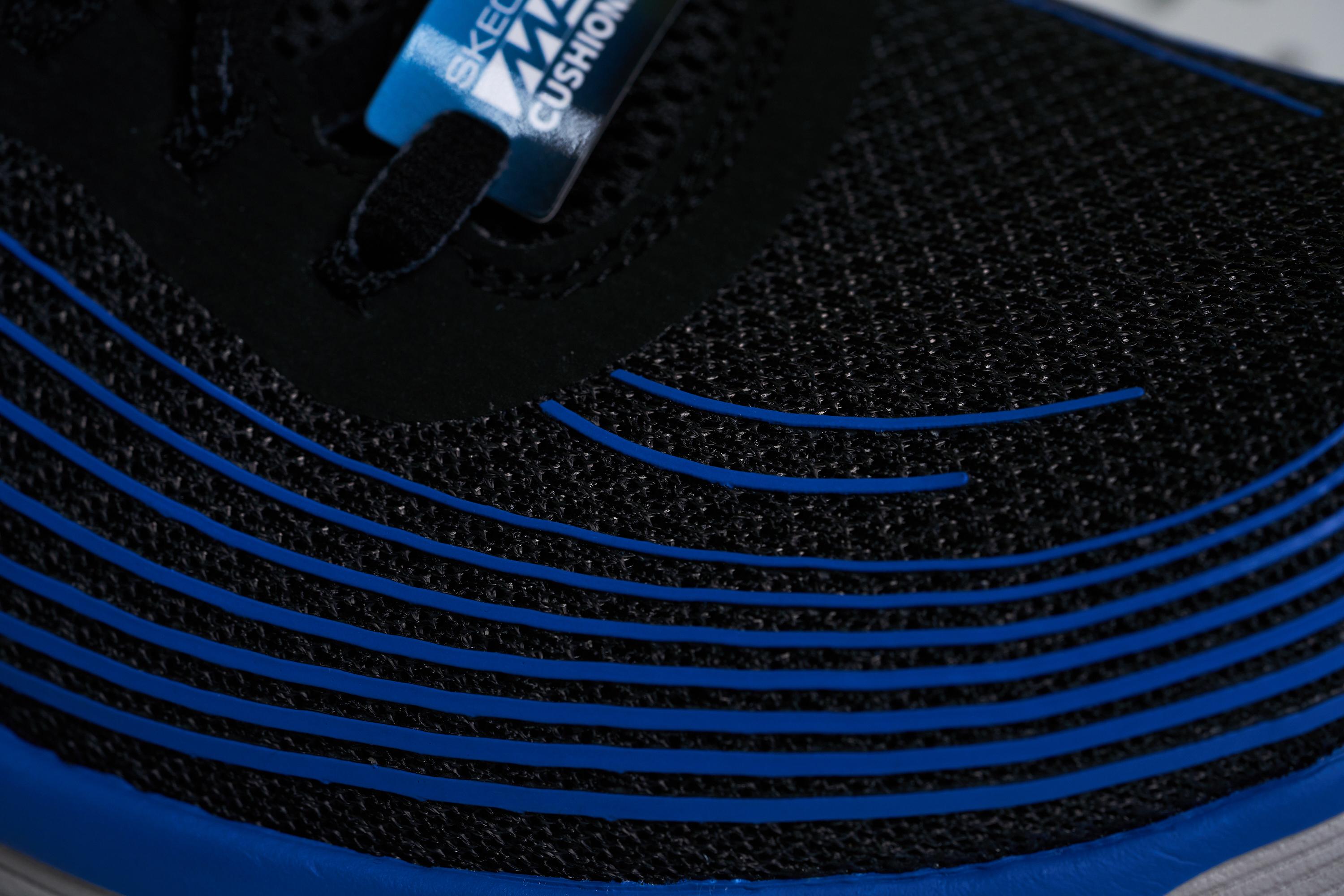
Kind of stiff, but that’s a good thing
On such a well-padded shoe, stiffness is a really important factor. If there’s too much torsional or longitudinal flexibility (twisting and width-wise respectively), then all that padding makes for a seriously unstable shoe.
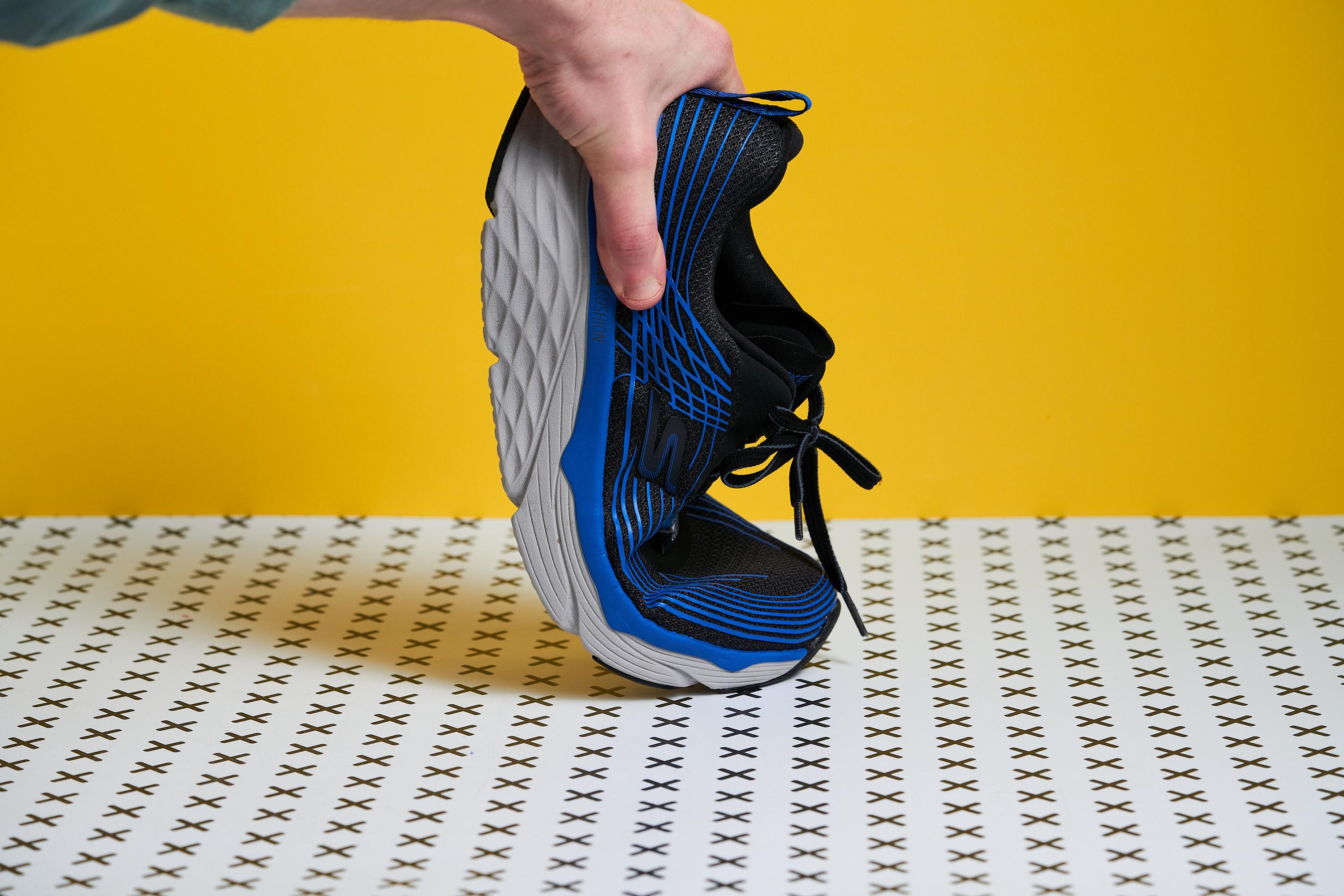
Our lab testing records the force in newtons (N) to bend a shoe to 45°, recreating the natural movement of the shoe. The average for our running shoes in 34.9N and the Skechers Max Cushion Elite came in at 36N, so pretty close to average.
At first, that’s not much to look at, but our average is comprised of shoes with carbon plates and TPU shanks, none of which the Skechers Max Cushion Elite has. For a shoe with just foam, that’s a pretty high result.
A similar shoe like the Hoka Mach 4 scored 28.3N.
The insole should come out
This is the first pair of Skechers I’ve worn since my mom bought me a pair too big when I was 9 and my feet were growing a mile a minute. It was kind of nostalgic to see that they still put a little sample of the insole on a key-ring attached to the lacing of the shoe.
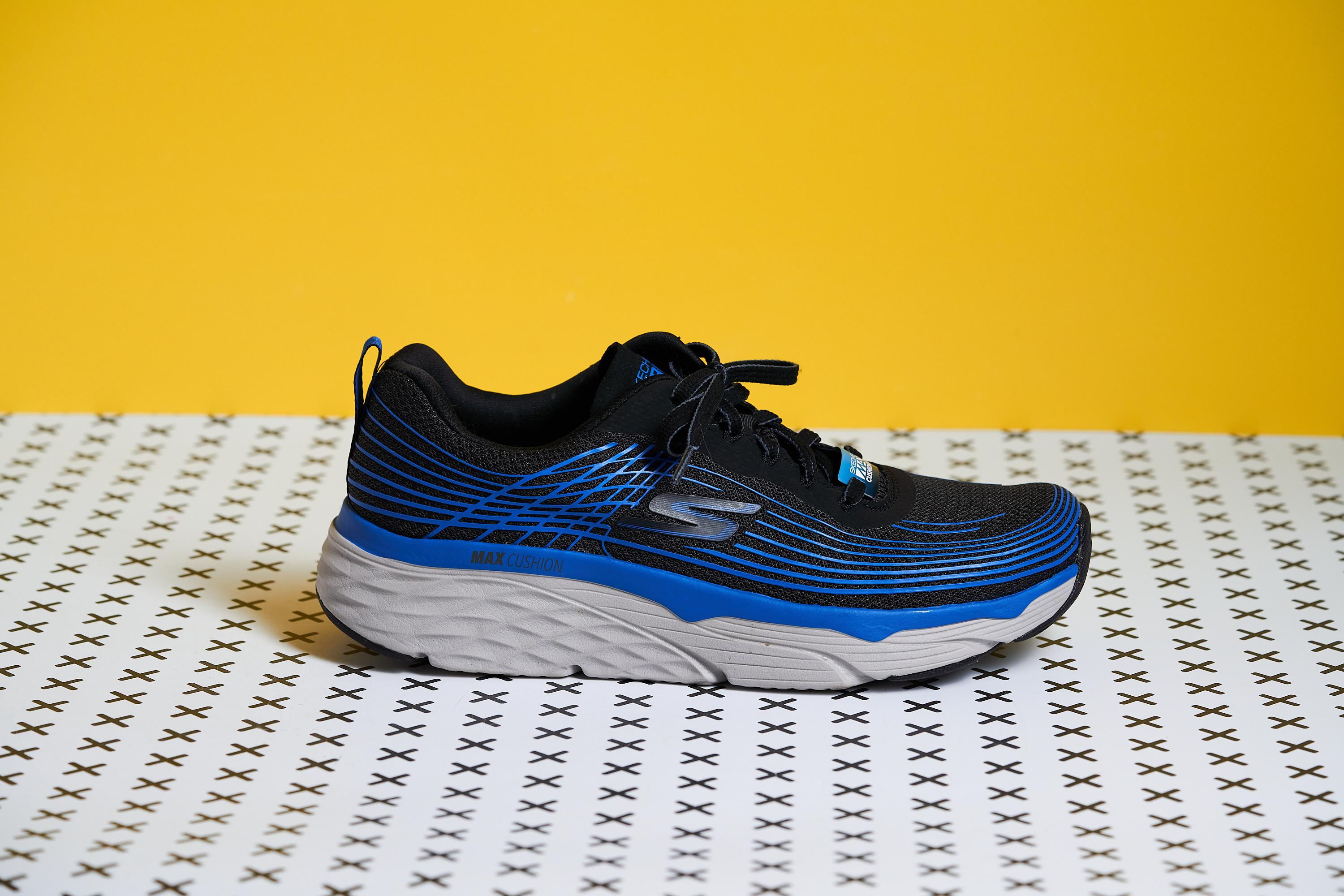
Aside from a very noughties marketing ploy and being a little more wasteful than I’d like to see in the twenties, the insole really doesn’t impress me.
While it is soft, plush, and 7mm thick, it provides nominal arch support and that’s something a lot of runners want to see. From biomechanical issues to plantar fasciitis, aftermarket insoles are becoming a great option for avoiding injuries.
Not being able to put my own insoles into my daily trainer would usually be an instant dealbreaker for me.
The grip is nothing to write home about
There’s not too much to say about the 78.8HA (average 81.1HA) outsole on the Skechers Max Cushioning Elite. The outsole doesn’t cover much of the shoe and at 3.2mm is quite thin.
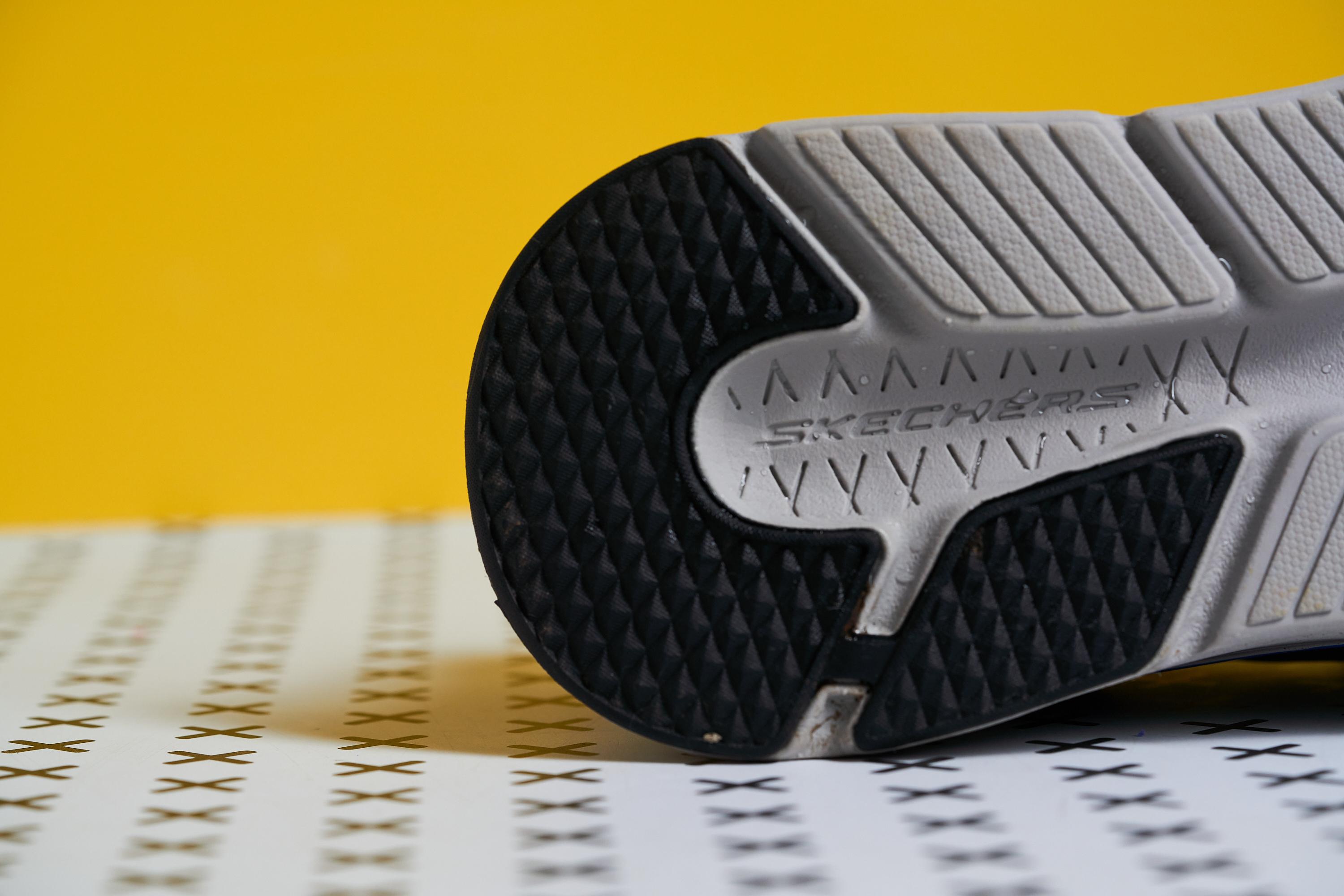
The pairing of softer and thinner outsoles sparks a few warning lights for the durability of the shoe. Especially without stability control, there’s a strong chance that the outsole will wear down quite quickly on one part of the shoe, exposing that lovely soft foam midsole.
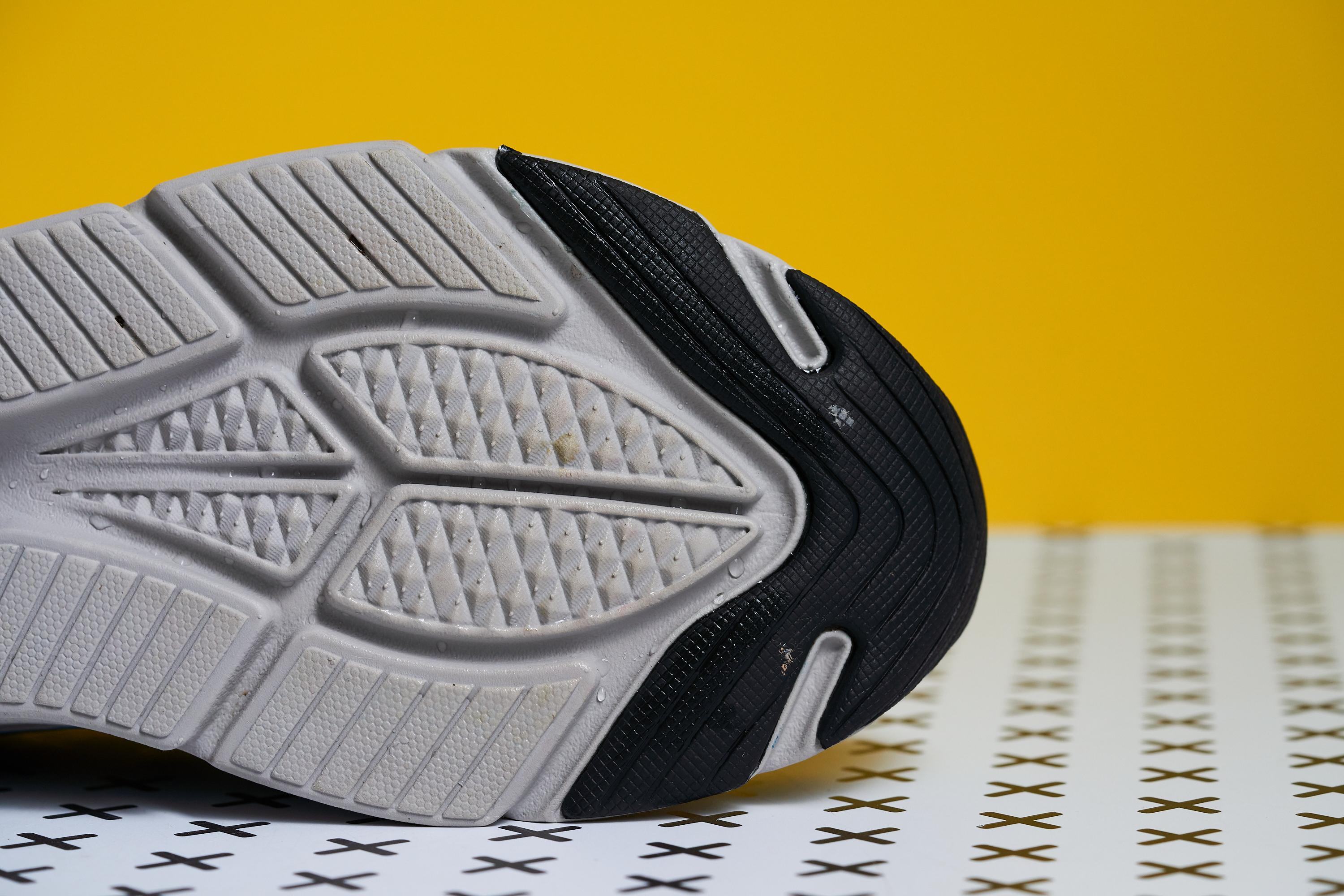
Conclusion
The Skechers Max Cushion Elite is a very budget-friendly shoe. They are a great option if you’re an infrequent runner who’s relatively new to the sport. For serious daily use, I’d spend a bit more money and you’ll probably save in the long run (pun intended) by getting something better suited to your needs and usage.

